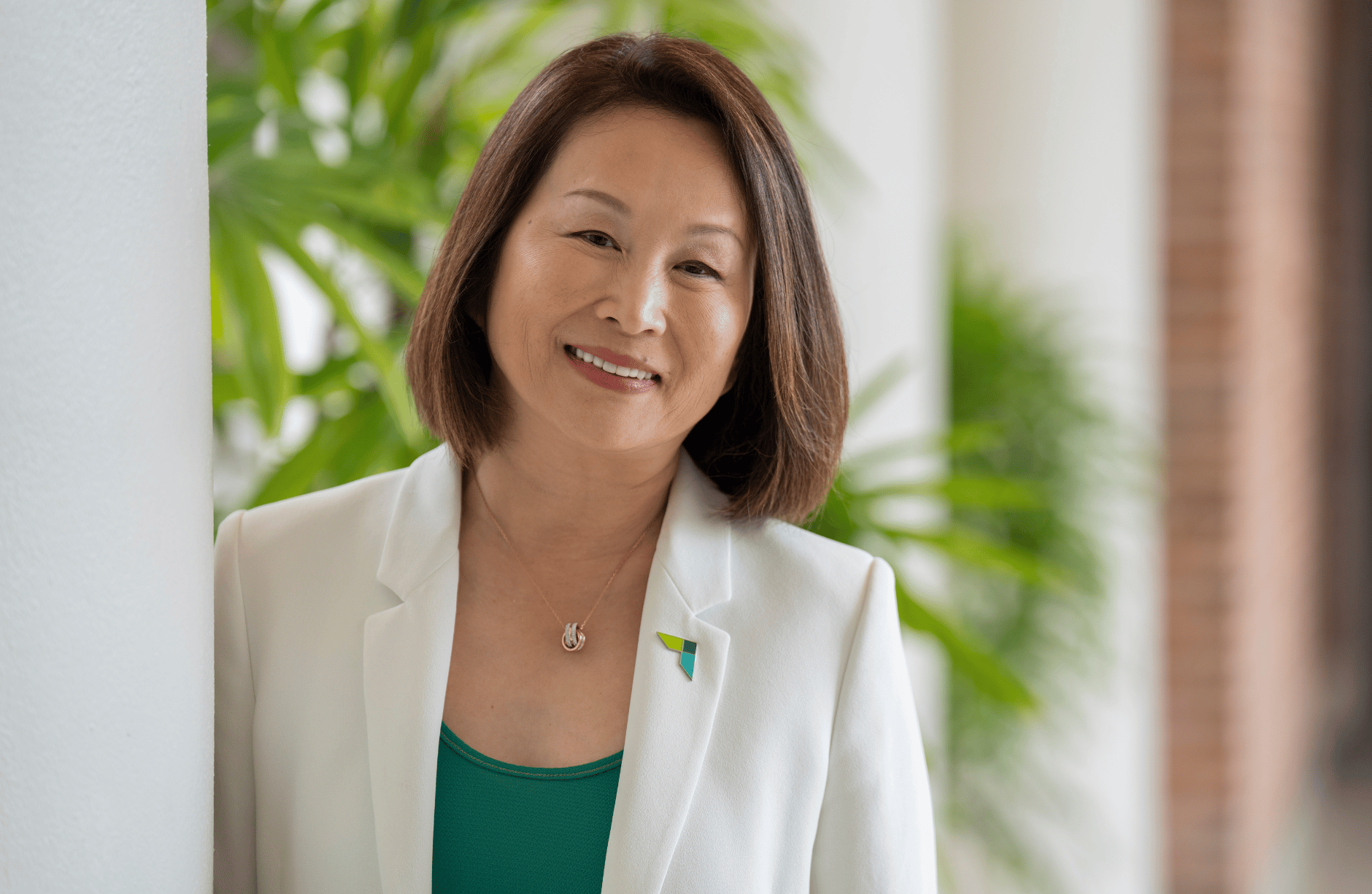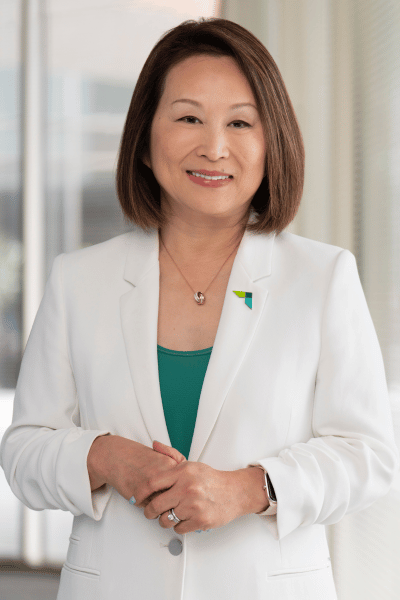The Importance Of Business School Research With Positive Societal Impact – Lily Bi, President and CEO of AACSB

- Business schools are tasked with creating the next generation of leaders who will address complex international issues
- AACSB supports schools in their journeys of continual improvement, says President and CEO Lily Bi
- Member schools report a total of 603 societal impact initiatives in the 2023 State of Accreditation Report
“I’m a strong believer in lifelong learning and the power of business education. I have two degrees from business schools,” says Lily Bi, President and CEO of AACSB International.
“Whether you work in a public company, private company or government entity, skills like critical thinking, data analytics, communication, and leadership are highly valuable and transferable.”
Bi’s own story, from working across Asia to North America is an example of the kind of diverse, international career business education can pave the way for.
Originally working in computer science, she went on to pursue an MBA from the University of Texas at Dallas and a DBA from the University of South Florida Muma College of Business. Going back to the classroom was an important decision, she believes, as it allowed her to develop an understanding of organisations in their entirety, a skill which serves her well in her current role.
For Bi, the beauty of a business degree is that it opens the door to many different career paths. It provides a solid foundation for graduates to launch themselves into a wide variety of professions and industries. Having experienced these benefits during her time as a student, she now derives fulfilment from supporting the sector through her work heading the world’s largest and oldest accrediting body for business schools.
Being able to facilitate discussions and collaborations between AACSB’s global network of members, speaking with deans and other senior leaders, is something she regards as a great honour.
“It was like the stars aligned when I was offered this role. I get to work closely with 1,800 business schools around the world. If our mission at AACSB is to advance business education, being part of this organisation is a dream come true,” she says.
Shaping the leaders of tomorrow
Bi believes that business schools are tasked with training the next generation of leaders, who will face a host of complex international issues, such as navigating the transition towards sustainability.
One important way that schools are rising to the challenge is by producing research which has a positive societal impact. As a global accrediting body, AACSB seeks to support schools in this endeavour.
“I was an auditor for 20 years, so I understand it’s important when you have an accreditation that it’s based on criteria that can be measured. Impactful research and involvement with external stakeholders are two of the things we look at when evaluating schools based on our criteria,” says Bi.

“We also offer guidance to schools on how they can implement our criteria. For instance, we published the Research That Matters report, which outlines the three components of impactful research. It must be interdisciplinary, intersect academia and the practical world of business, and include findings that will lead to significant change.
“For instance, an example of how research plays an important role in a school’s societal impact has to do with innovation and developing solutions. Researchers in these fields drive new experiments, new ideas, new technologies, and new methodologies, leading to the development of novel solutions that improve on existing ones. That is one type of research we look for when appraising a school for accreditation,” she adds.
AACSB offers resources not just aimed at deans and tenured faculty, but also at young associate professors. The goal is to encourage collaboration across disciplines and organisations in order to find solutions for worldwide challenges.
Bi is optimistic that many business schools are already multidisciplinary institutions. “They teach accounting, marketing and many more subjects. So, it’s natural for professors at these schools to understand the need to take a broader look at societal issues,” she says.
Introducing societal impact initiatives
Many business schools use the United Nations Sustainable Development Goals (SDGs) as their framework for communicating their societal impact initiatives. Others use their own terminology or a different framework. Regardless of how schools communicate their efforts, what they are presenting is a holistic approach to driving change. They are producing impactful research and innovative programmes, facilitating meaningful internships, and engaging with local businesses and communities thoughtfully.
AACSB provides guidance for its member schools on areas for further growth and development, for example through continuous improvement review (CIR) visits. From July 2022-June 2023, the organisation carried out 167 such visits. These reviews are also an opportunity to discover how schools are already engineering change. In the 2023 State of Accreditation Report, AACSB reveals a total of 603 societal impact initiatives at CIR-visited schools.
These initiatives were split into three categories: social, economic and environmental. Social initiatives were the most common, comprising around 45 percent of the recorded schemes. Economic strategies were second, accounting for around 30 percent, and environmental actions were least prevalent, at only 24 percent.
Overall, these statistics provide an insight into how schools are approaching the task of educating leaders who are committed to bettering the world around them, not just generating profits. For instance, schools in the Asia-Pacific and EMEA regions were fairly evenly focused on all three categories, while schools in the Americas placed more emphasis on social and economic efforts, and less on the environment.
“It’s become an expectation today that all AACSB-accredited schools need to have major elements throughout their teaching and research which focus on societal impact,” Bi says.
The previous accreditation standard was set in 2013 and included all the requirements one would expect: quality of learning, quality of research, etc. Since then, it’s undergone a revamp, with societal impact goals woven through all the various criteria. AACSB also launched its first Societal Impact Conference in 2022, to encourage dialogues between institutions.
“The accreditation is the tool – the goal, at the end of the day, is quality improvement. Whether it’s a new school or a mature, accredited school, even ones at the top of business education, it’s important to keep making progress. Accreditation is the end result of continuous education and improvement,” Bi says.
Interested in this topic? You might also like this…
